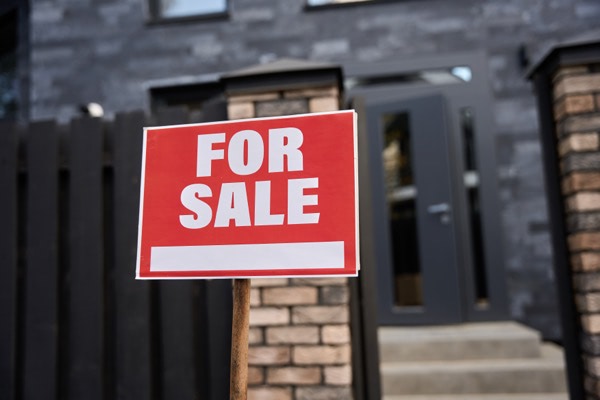Can you get a mortgage on maternity leave? This post explores how new parents should navigate the housing market as home buyers.

Which type of mortgage is best for you?
Mortgages can be confusing and stressful. It seems like there are endless factors to consider when applying for a mortgage, and you might be wondering if you have a good understanding of every type of mortgage product. If that’s the case, fear not. We’ll outline some of the main mortgage products and terms for you to know. This way, you can start to gain an understanding of what they might mean for you. Of course, you can also contact a broker to help you along the way (which we recommend!). Let’s get started.
Open mortgage
An open mortgage has the most flexibility for borrowers. Borrowers who want the option to make extra payments, or variable payment amounts, often opt for open mortgages so they can treat their mortgage as a living, breathing thing. Open mortgages don’t have harsh penalties for prepayments or paying off the mortgage term early. Of course, open mortgages are flexible on both ends, meaning interest rates are variable as well as the borrowers’ payment options. This means open mortgages go hand in hand with variable rate mortgages (more on those below).
Closed mortgage
Conversely, closed mortgages don’t have the kind of flexibility that open mortgages do. This type of mortgage is best for people who are sure of their payment amounts and schedule, and don’t require the flexibility of prepayments. These are also suitable for people who want a longer-term mortgage, as closed mortgages are trickier to break. Closed mortgages often have lower interest rates because they don’t have the flexibility of open mortgages. Closed mortgages can have either variable or fixed rates.
Fixed-rate mortgage
A fixed-rate mortgage is a mortgage where the interest rate doesn’t change throughout your term. You lock into a rate, and you stick with that rate until you renew or refinance your mortgage. Even if interest rates change, your mortgage rate will stay the same. This can either be a benefit or a drawback. If rates go down and end up lower than your fixed rate, you may be paying more in interest, but if rates go up you will not have to start paying more. Fixed rates come with an interest rate differential (IRD), and it can often be expensive to break your term early.
Variable-rate mortgage
A variable-rate mortgage comes with an interest rate that can change over the course of your term. Variable rates are determined by the prime rate, which can go up or down and cause mortgage rates to change accordingly. Since rates are flexible, borrowers have more flexibility too. Your prepayment privileges and ability to pay off your mortgage early are wider than with fixed rates, and the penalty for breaking your term is three months’ interest. That payment with this type of mortgage is often less harsh than the IRD you face with a fixed rate.
Private mortgage
A private mortgage is for borrowers who don’t qualify for a conventional mortgage with traditional lenders. Whether it’s because of credit issues, low income, or self-employment status, there are many situations where a borrower doesn’t check off all the boxes a traditional bank lender requires. In these cases, borrowers often turn to private lenders. This type of mortgage is far more flexible in terms of qualification and lending. However, it also comes with higher interest rates in exchange for this flexibility. It’s important to consider whether a private mortgage is affordable for you, especially if you already have income or debt issues.
Reverse mortgage
Finally, we wanted to quickly talk about the reverse mortgage. This isn’t a mortgage option for first-time buyers, or in fact, for anyone below the age of 55. A reverse mortgage allows home owners 55+ to get up to 55 per cent of their home’s value back in cash. Since many people’s biggest source of savings and equity is in their home, this is a way to access that equity without selling. Of course, you must repay the funds you take out, and the interest rates are high because you don’t owe payments until you sell the home. Read more on this type of mortgage to see if it could suit you here.
Of course, some of these mortgage types and terms will overlap one another, such as an open variable rate or a closed fixed rate. Your suitability for these mortgage options will depend on your personal preferences and your financial situation. Take your time when considering your options, and get in touch with a mortgage broker for extra guidance! We can help you navigate your options, and find the product that’s best for you.
If you have questions about your mortgage, give us a call at Centum Home Lenders at 506-854-6847, or get in touch with us here.


